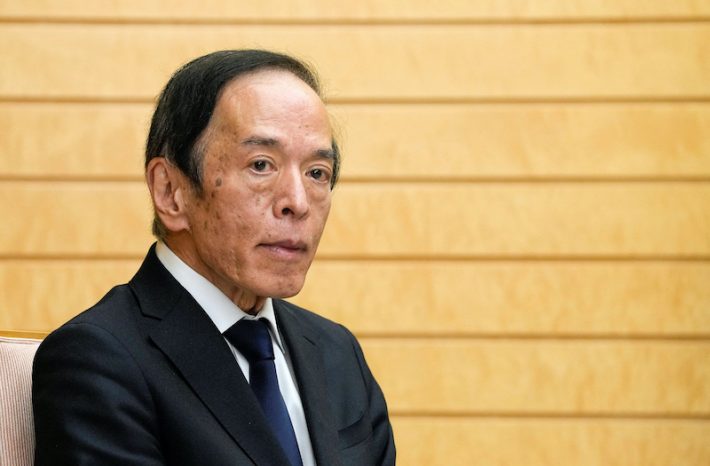Japan’s central bank may be about to step up its retreat from monetary stimulus.
The Bank of Japan has been suggesting that its quantitative tightening (QT) plan for July could be bigger than markets envisage – and may even include an interest rate hike.
Hawkish hints delivered over the past week highlight the pressure the BoJ faces in the wake of renewed yen falls, which could push inflation well above its 2% target by raising import costs.
ALSO SEE: China’s Retailers Fear Dismal Sales After 618 Shopping Flop
Notwithstanding a market shock or severe economic downturn, a rate hike would be on the table at each policy meeting, including July’s, three sources familiar with its thinking said.
“Given what’s happening with inflation, interest rates are clearly too low,” said one of the sources. “Much depends on upcoming data, but a July rate hike is a possibility,” another source said, a view echoed by a third source.
The BOJ kept interest rates steady around zero this month.
However, the board debated the need for a timely hike with one member signalling the chance of doing so to prevent cost pressures from pushing up inflation too much, a summary of the meeting showed on Monday.
That was largely read as a sign the bank is gearing up for near-term action.
Governor Kazuo Ueda told reporters after the meeting that a rate hike next month cannot be ruled out.
BoJ plan to trim huge bond buying
Hiking rates at the July 30-31 meeting could have a huge impact on markets, as the BOJ also intends to announce a detailed plan on how it would trim its massive bond buying and reduce the size of its $5 trillion balance sheet.
Ueda has said the BOJ could make a “sizeable” cut to its bond buying, suggesting the scale of reduction could be large to ensure markets shake off the shackles of yield curve control – a policy that was ditched in March.
As with other central banks, the focus of the BOJ would be to craft a QT plan that avoids causing unwelcome spikes in bond yields.
But concerns over the weak yen also require the QT plan to be ambitious enough to avoid underwhelming market expectations and triggering sharp declines in the currency.
The trade-off means the BOJ will likely announce a plan to trim monthly buying at a steady, set pace, while leaving some flexibility to adjust the speed as needed, the sources said.
While there is no consensus within the bank on the details, one idea being brainstormed is a design similar to the US Federal Reserve’s that mechanically trims buying, albeit with more flexibility.
The BOJ can do this by indicating a narrow range, instead of a set figure, at which it will trim bond buying. It can also insert an “escape clause” that pledges to slow or temporarily halt tapering if markets become too volatile, the sources said.
The bank will taper across various bond maturities in a way that does not cause distortions in the yield curve, they said.
The BOJ will hold a meeting with bond market participants on July 9-10 to collect their views on what kind of plan will work, a move one board member said was aimed at ensuring it can trim buying “to a greater extent,” the June meeting summary showed.
Izuru Kato, chief economist at Totan Research and a veteran BOJ watcher, said the central bank must balance the need for exchange rate stability with the need for bond market stability.
For that reason, it may look to deepen the cuts to its bond buying each quarter.
“If the yen keeps weakening, the BOJ could do both the taper and a rate hike in July,” Kato said. “Just going with a taper might not be enough to prevent the yen from falling further.”
- Reuters with additional editing by Jim Pollard
ALSO SEE:
Bank of Japan Ends Negative Rates, as Ueda Normalises Policy
BOJ Views on Inflation, Pay Rises Put Spotlight on Rates Shift
Japan’s Salaries Surge Could See BoJ Turn to Tightening
BOJ Not Afraid of Cost of Phasing Out Stimulus, Ueda Says
BoJ Dismiss Rumours Ultra-Easy Policy Will be Ditched
Yield Curve Call Sparks BOJ Policy Doubts as Yen Struggles
New BOJ Boss Ueda Sees Wages Rising, Global Rebound






















